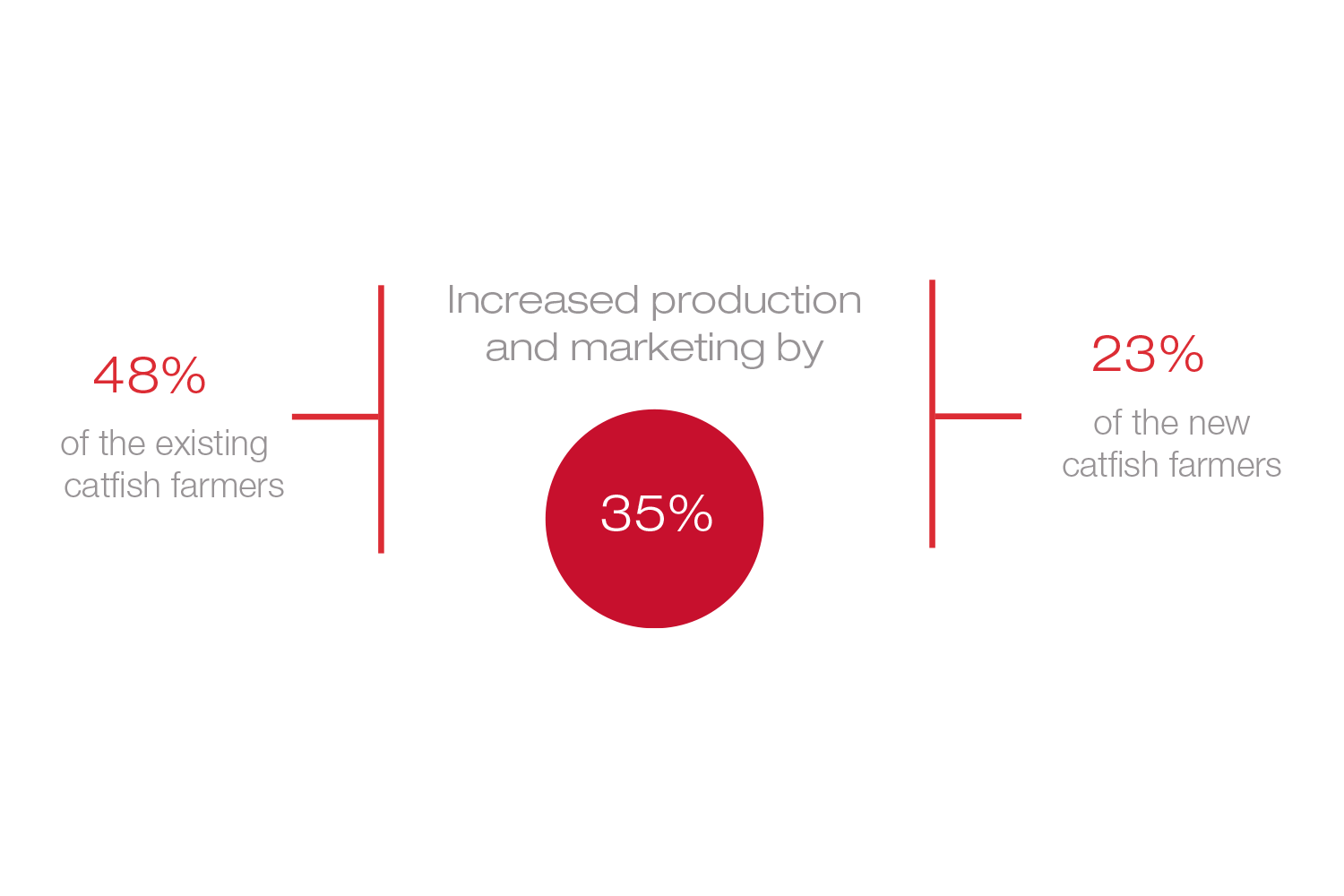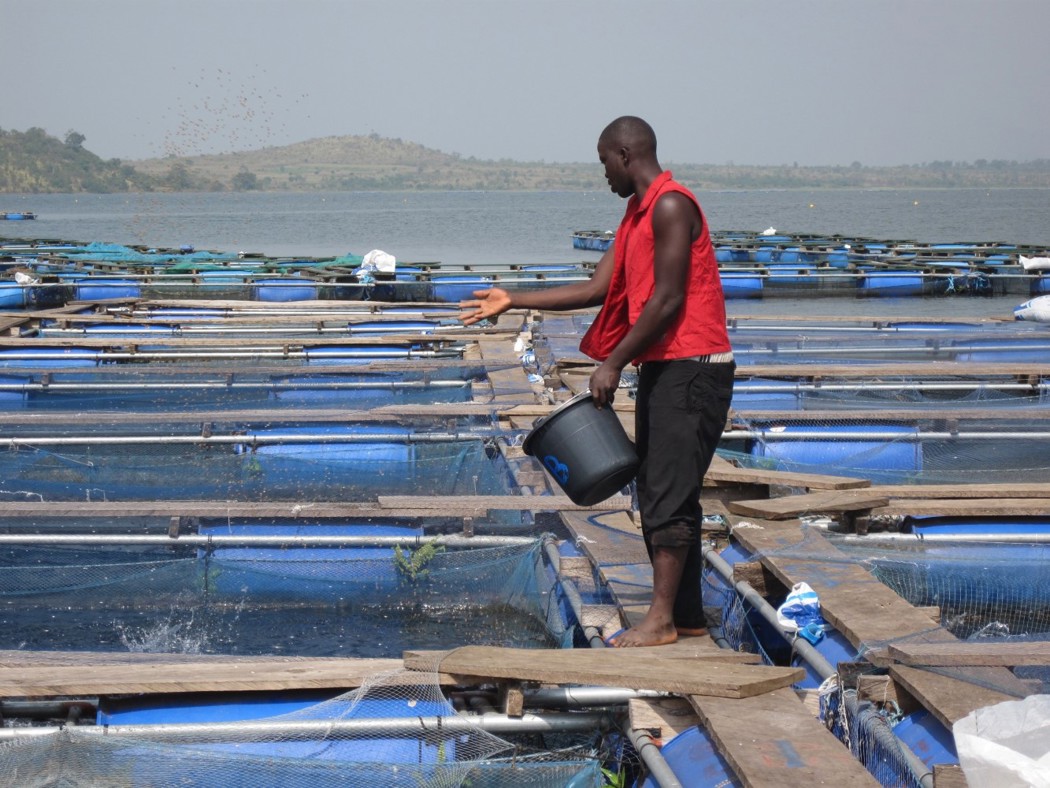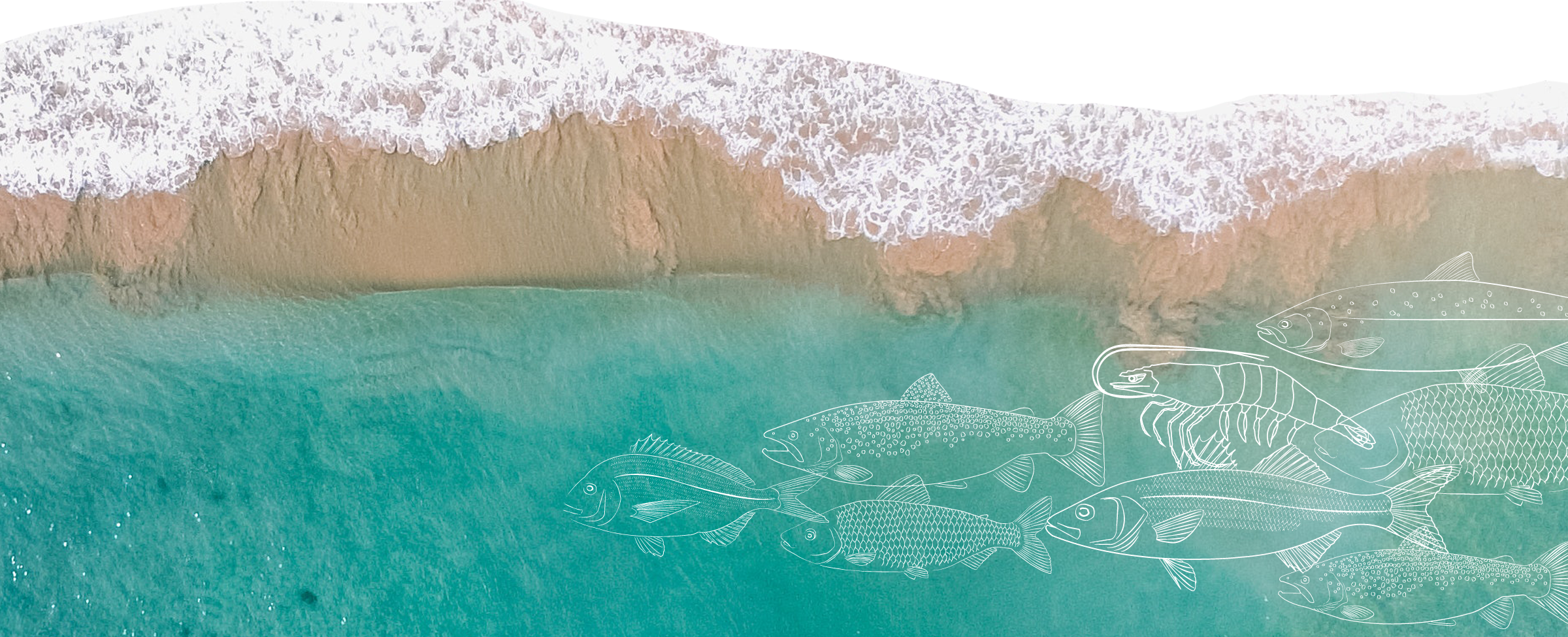Continuing community development with Nigerian catfish farmers
Since 2015, as part of the “creating shared value” concept adopted by Skretting and parent company Nutreco to engage with small-scale, marginalised farmers in the communities that we are present, we have been managing a project in Ibadan, Nigeria, aimed at generating opportunities through sustainable aquaculture.
Partnering with a local NGO, the Catfish Sustainability Project (CSP) has convened hundreds of local fish farmers, shared best-practice production protocols and given invaluable training to enable them to produce fish much more sustainably. The initiative is funded by Nutreco and Skretting Nigeria, and facilitated by the Justice, Development and Peace Commission (JDPC) in Ibadan.
In January 2020, the fourth phase of CSP got underway with a target of adding a further 233 catfish farmers to the existing 467 project beneficiaries. At the end of the year, 175 new beneficiaries were added, totalling 642 catfish farmers (comprising 519 males and 123 females in 35 catfish farmer groups). Some 264 of the farmers accessed 247,275 kg of feed through the revolving feed input support provided between January-December 2020.
The Catfish Sustainability Project has convened hundreds of local fish farmers, shared best-practice production protocols and given invaluable training to enable them to produce fish much more sustainably.

Through frequent capacity development programmes, those farmers in the project saw clear improvements in sales and income. Despite the COVID-19 pandemic affecting farmers’ sales, 47.96% of the existing catfish farmers and 22.8% of the new farmers increased their income from catfish production and marketing by 34.8%.
Following the objective of encouraging sustainable aquaculture system, the catfish farmers were frequently trained on best management practices, while implementation was ensured through constant monitoring and technical advisory services. Some 69% of these producers adopted these innovative best aquaculture practices, achieving an average fish survival rate of 93.5%. These elements contributed to an average income of 548,641 Naira (approx. EUR 1,110) for each participating catfish farmer in 2020.


In 2021, we intend to scale-up the number of project beneficiaries to 850 farmers. At the same time, more programmes to help improve farmers’ adherence with best management practices, training and capacity development will be carried out for current and new groups. Additionally, the CSP team is working towards the provision of a revolving fund (feeds) for catfish farmers and to link them up with existing groups and institutions through learning visits.
